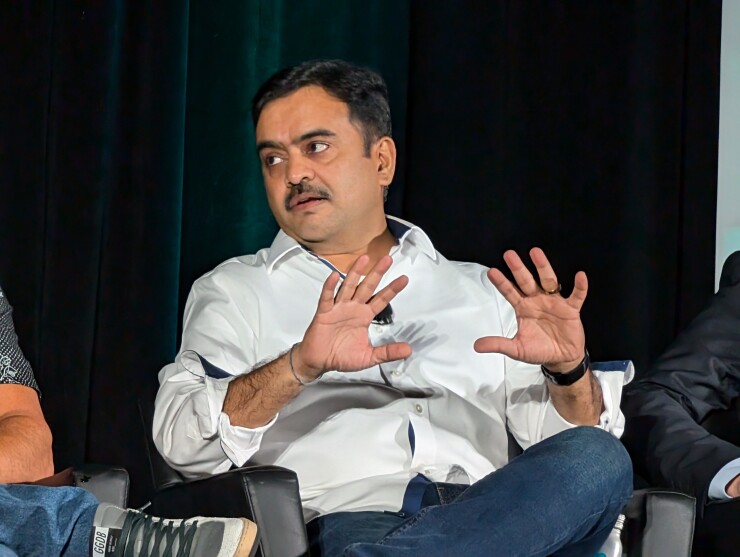Mortgage professionals are in good spirits with the housing market's doldrums seemingly coming to an end.
Experts at the Digital Mortgage conference Monday in San Diego shared optimistic views regarding higher origination volume projections into 2025. They still however shared some caution for the industry ahead of
Here are a few takeaways from day one of the Digital Mortgage conference.
The next refinance environment
The playing field for refinance customers has shifted since the era of 3% mortgage rates. In the past, mortgage servicing rights holders or Wall Street firms didn't have origination capabilities, said Chad Smith, president and chief operating officer at
"I don't think people expected the [Mr.] Coopers and Pennymacs of the world that have origination arms to own all the servicing," he said. "So that's what I focus on every day, how am I going to compete with that."
Nonbanks in the second quarter had a
Sridhar Sharma, executive vice president and chief information officer at

"We've been focused on providing our loan officers the tools they need to be able to talk to the customers, and we've invested in digital tools to make it easy for our customers to get to us when the rate of environment changes," he said.
Lenders need to be cautious as activity returns. Jeremy Collett, executive director of capital markets at
"I don't think that's going to be the case this time around," he said. "Everybody's been on the receiving end of negative pricing adjustments,
Tech priorities and AI questions
Concerning their
Erin Langevin, senior vice president of national retail operations at Guild Mortgage, said lenders should ask their third-party vendors to help them understand how to leverage their technologies better.
Four in ten mortgage firms are using artificial intelligence, while 50% are still planning or exploring use cases, according to Arizent's research.
AI is a sensitive area for some companies, experts said. Some firms didn't want to participate in a recent
"That paralyzing force seems like the opposite way to go," she said. "You want people to talk about it and try to experiment."
Price, while excited about AI, said in a later panel that the number of use cases of AI remains limited. Steve Holden, senior vice president of single-family analytics at Fannie Mae, said
Panelists discussed the "hype cycle," a graph of AI expectations versus time passed representing a huge initial interest, subsequent crash and final, steady plateau. Brandon Rush, senior vice president and head of digital experience at Freddie Mac, said the fear-of-missing-out peaked six-to-nine months ago.
"You've got to find the right balance between continuing to experiment and then slowing down," he said. "Focus on lower-risk use cases in the beginning while you sort or develop the muscles."




